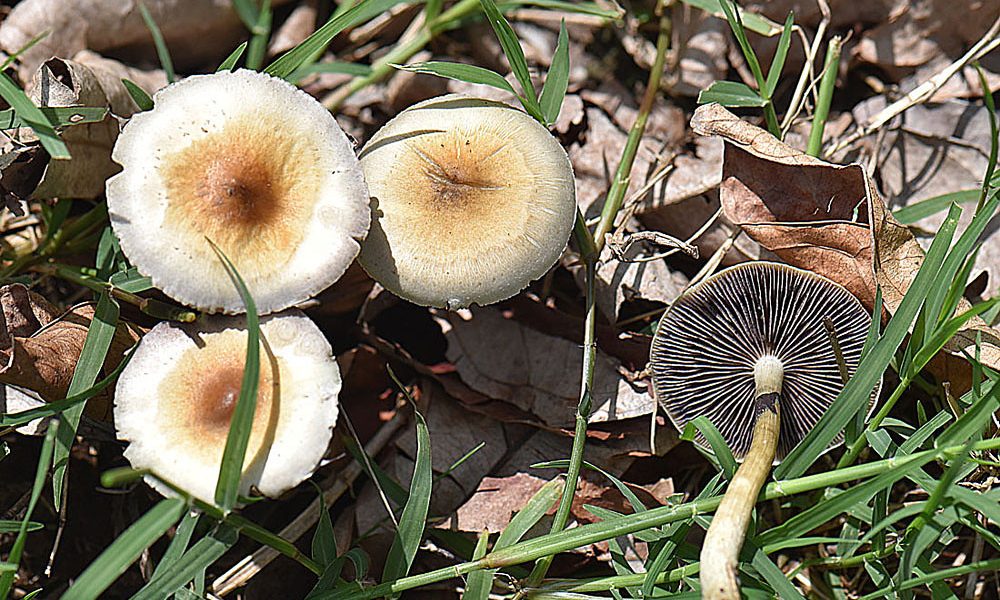The governor of Arizona has signed into law budget legislation that includes provisions to fund research into the medical potential of psilocybin mushrooms for a variety of conditions.
Gov. Katie Hobbs (D) gave final approval to the appropriations package on Thursday, just hours after it cleared the legislature.
Lawmakers introduced a standalone psilocybin bill, which unanimously passed one House committee in February, but they reached an agreement to have its provisions attached to the budget deal instead, albeit at a lower funding level than originally proposed.
The proposal is being enacted through two complementary bills that the governor signed: one that will provide $5 million in funding for psilocybin research and another that details requirements for the clinical trials that those dollars will support.
“The GOP has often fought for medical freedom, opposing FDA overregulation and pushing for ‘Right-to-try’ laws,” Rep. Kevin Payne (R), prime sponsor of the legislation, said in a press release. “Arizonans, especially veterans, deserve alternatives to dangerous and addictive prescriptions. This bill will help.”
Yesterday, I signed a bipartisan budget into law. While it isn’t perfect, it’s an important step towards making housing more affordable, building more roads, bridges and broadband access, expanding children’s health insurance, and investing in our public schools. I’m glad… pic.twitter.com/Ii46FqaKoI
— Governor Katie Hobbs (@GovernorHobbs) May 12, 2023
The standalone measure that advanced through committee would have included $30 million in funding over the course of three years.
Under the enacted budget legislation, the state Department of Health Services (DHS) will distribute $5 million for fiscal year 2023-2024 for “whole mushroom psilocybin phase one, phase two and phase three clinical trials that are capable of being approved” by the federal Food and Drug Administration (FDA) for the treatment for any of the 13 listed conditions.
Those conditions include post-traumatic stress disorder (PTSD), depression, anxiety, long COVID symptoms and substance misuse disorder, for example.
Researchers who use psilocybin with approval from the federal Drug Enforcement Administration (DEA) and whose trials involve veterans, first responders, health care workers and people from underserved communities will be prioritized for grant money.
The bill wouldn’t legalize psilocybin like lawmakers in several other states are aiming to accomplish, but people who receive the grant money and work on the clinical trials will be explicitly protected from prosecution under the bill.
A “Psilocybin Research Advisory Council” will be established under DHS, tasked with establishing eligibility criteria for grant recipients, overseeing applications and making “recommendations to the governor, the speaker of the House of Representatives, the president of the Senate and the department on psychedelic-assisted therapy based on current federal and state research policy.”
The council will need to include the DHS director, a physician with a federal license to study psychedelics, a military veteran, a law enforcement official and a professor or researcher from an Arizona-based university.
—
Marijuana Moment is tracking more than 1,000 cannabis, psychedelics and drug policy bills in state legislatures and Congress this year. Patreon supporters pledging at least $25/month get access to our interactive maps, charts and hearing calendar so they don’t miss any developments.![]()
Learn more about our marijuana bill tracker and become a supporter on Patreon to get access.
—
Numerous lawmakers in states across the U.S. have been pursuing psychedelics reform this session, particularly measures that focus on research and therapeutic use.
For example, the Connecticut House of Representatives on Wednesday approved a bill to decriminalize possession of psilocybin mushrooms, sending it to the Senate.
The governor of Washington State signed a bill on Tuesday to promote research into psilocybin and create a pilot program to provide therapeutic access to the psychedelic for mental health treatment.
Vermont lawmakers held a committee hearing this month where members discussed legislation to legalize psilocybin and take first steps toward providing regulated access to the psychedelic.
A California bill to legalize the possession of certain psychedelics and facilitated use of the substances is heading to the Senate floor under an accelerated process that is allowing it to skip further committee consideration.
The Minnesota House recently passed an omnibus health bill that contains provisions to create a psychedelics task force meant to prepare the state for possible legalization.
Last month, a Republican North Carolina lawmaker and a bipartisan group of cosponsors filed a bill to create a $5 million grant program to support research into the therapeutic potential of psilocybin and MDMA and to create a Breakthrough Therapies Research Advisory Board to oversee the effort.
A Nevada Senate committee approved a revised bill last month that would create a new working group to study psychedelics and develop a plan to allow regulated access for therapeutic purposes.
The Hawaii Senate approved a bill last month to create an advisory council to look into possible regulations to provide access to federal “breakthrough therapies” like psilocybin and MDMA.
Oregon regulators recently approved the nation’s first license for a psilocybin service center where people will be able to use the psychedelic in a supervised and facilitated environment.
Meanwhile, National Institute on Drug Abuse (NIDA) Director Nora Volkow told senators last week that there is emerging evidence that psychedelics carry “significant potential” as therapeutic treatments for certain mental health conditions, and it’s a topic of “great interest” for researchers.
An analysis published in an American Medical Association journal last year concluded that a majority of states will legalize psychedelics by 2037, based on statistical modeling of policy trends.
A national poll published in March found that a majority of U.S. voters support legal access to psychedelics therapy and back federally decriminalizing substances like psilocybin and MDMA.
New Hampshire Senate Rejects House-Passed Marijuana Legalization Bill
Photo courtesy of Dick Culbert.
Read the full article here

